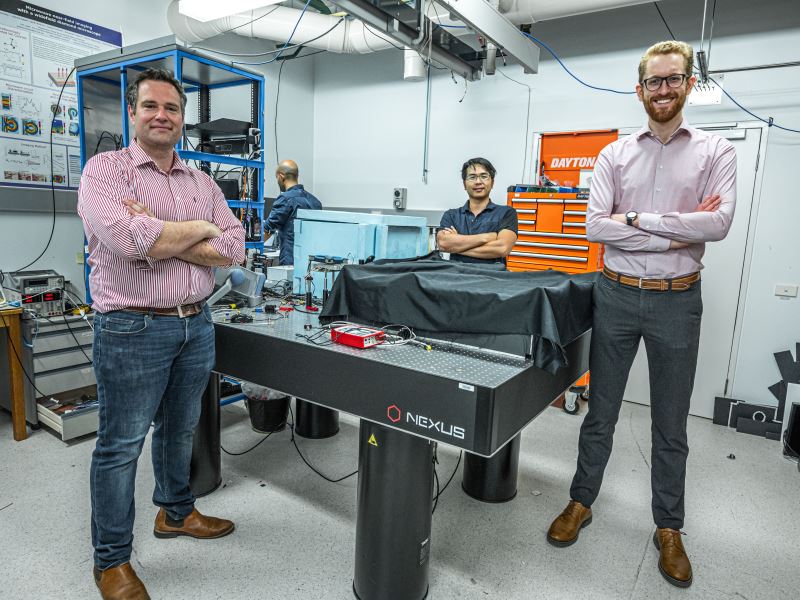Australian startup Quantum Brilliance will help deliver the world’s first mobile quantum computer for Germany’s cyber innovation agency in a joint $58 million procurement announced on Wednesday.
Quantum Brilliance is partnering with an Austrian infrastructure firm on the work, splitting one third of the €35 million contract from agency Cyberagentur, which funds high risk and reward cyber research.
The new project is the German agency’s biggest yet and includes two other cohorts vying to deliver a quantum computer that can operate in the field rather than a data centre, with potential use for civil and defence.

Quantum Brilliance and ParityQC say they will deliver the world’s first mobile quantum computer to the agency by 2027, with potential applications like optimised troop movement and simulating chemical or biological agents in real time.
“The potential of a quantum mobile computer is enormous for defence and cybersecurity in Germany and allied nations, and we believe our technology is the perfect fit for fulfilling the goals of this project,” Quantum Brilliance co-founder and chief executive Mark Luo said.
Founded in 2019, Quantum Brilliance is a venture backed hardware firm that has developed diamond quantum accelerators. It is betting on a wider spread of smaller hardware and integration with classical platforms rather than the large, error corrected quantum computers.
The company also has operations in Germany and will work with Austrian firm ParityQC on the mobile computer.
“We believe that the partnership with Quantum Brilliance puts us on a path to developing the world’s first mobile quantum computer,” said ParityQC’s co-CEOs Wolfgang Lechner and Magdalena Hauser said.
“ParityQC’s architecture offers advantages that will be critical to mobile development, such as the ability to process larger algorithms faster, and at a reduced error rate.”
The other successful bids for the project come from German trapped-ion quantum computing firm neQxt GmbH and a joint bid by the UK’s Oxford Ionics Limited together with German semiconductor manufacturer Infineon Technologies AG.
The major German project for Quantum Brilliance follows a research tie up with a US high performance computing lab announced earlier this month.
The company won the Manufacturing Innovation category at the InnovationAus Awards for Excellence in 2022.
Do you know more? Contact James Riley via Email.

